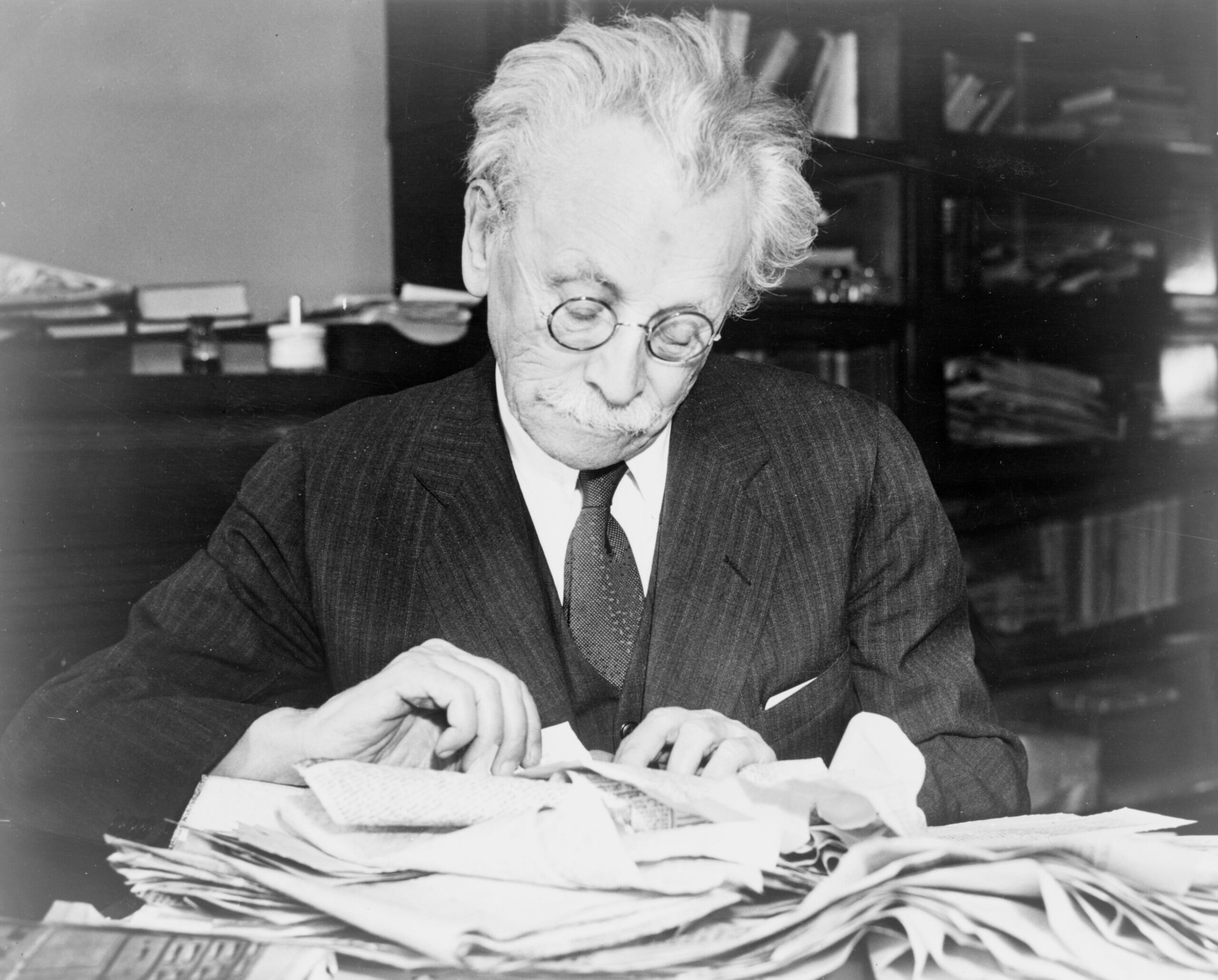The Showdown Between Two Forward Icons
Legendary editor Abraham Cahan and writer Isaac Bashevis Singer

Graphic by Angelie Zaslavsky
Ask most people to name someone associated with the Jewish Daily Forward, and they will likely mention one of two men: Legendary editor Abraham Cahan, or the most celebrated writer to graduate from his pages, Isaac Bashevis Singer. What much of the public does not know, however, is that our newspaper’s two iconic figures did not exactly get along. Indeed, theirs was a thorny relationship.
Cahan ruled his Yiddish daily like a fiefdom, exercising firm editorial control over his stable of renowned writers. Singer Ρ who wrote journalism, essays on popular culture and fiction for the Forverts for decades before he crossed over into mainstream success (eventually winning a Nobel Prize for literature in 1978) — staunchly opposed Cahan’s attempts to meddle in his work. In Singer’s own words, “Cahan was a dictator.”
The two men met in 1935, when Singer first arrived in New York from Warsaw. Singer’s brother, Israel Joshua Singer, an esteemed novelist who once worked as the Forward’s Warsaw correspondent, was responsible for the introduction. The younger Singer, an up-and-comer in the Yiddish literature scene in Warsaw, who had already published his first novel, “Satan in Goray,” two years before, soon began writing freelance articles and columns for the popular broadsheet. But it was a decade later, after his older brother’s death in 1944, that Singer — by then a staff writer — and Cahan fully realized their legendary feud.
With the death of Israel Joshua Singer Isaac Bashevis Singer truly arrived as a great American writer. Years of writer’s block melted away and Singer began a period of prolific output. The immediate result was “The Family Moskat,” a novel written in installments chock full of salacious content, including a scene of adultery on Yom Kippur. Cahan, who was also a novelist, willingly serialized the work in the Forverts, but had his own ideas of where the story should go. When Singer refused to comply with his editor’s demands, Cahan not only threatened to stop printing his work, but attempted to permanently remove the rising literary star from the paper’s staff.
At the core of the conflict, says Ilan Stavans, a Latin American culture professor at Amherst College who edited a three-volume collection of Singer’s stories, was a fundamental disagreement over the purpose of writing novels. Cahan, who had published “Yekl: A Tale of the New York Ghetto” and “The Rise of David Levinsky,” both of which dealt with Americanization and the life of Russian-Jewish immigrants, viewed fiction as a means of expressing his pro-labor ideals. Singer, on the other hand, was motivated by the exploration of character. “Cahan saw Yiddish literature as connected to socialist ideas,” said Stavans, “whereas Singer was apolitical and much more interested in mysticism and the plight of the individual.”
In a 1989 documentary on the history of the Forward, Singer describes how he ultimately won out over his tyrannical boss. “When I began to publish ‘The Family Moskat,’ he [Cahan] had already made up in his mind exactly how the novel should be. And when he spoke to me about it, I felt that this time I cannot just say, ‘I will do my best,’ because his plan was, from his point of view, a perfect plan. It was perfectly bad from my point of view.” When Singer told Cahan that he had “already made his plans” for the story, Cahan fired him on four weeks notice. “Then I had to complain to the management, and they stopped him not me, which was the miracle of my life,” said Singer. “No one believed that this has really happened, but it really happened.”
Singer may have proven a stronger adversary than Cahan might have predicted. Soon after the row, the “dictatorial” editor suffered a stroke that left him unable to continue his day-to-day duties at the Forward. His death came five years later in 1951, just two years before Saul Bellow would translate Singer’s story “Gimpel the Fool,” setting into motion Singer’s stratospheric rise to fame.





















